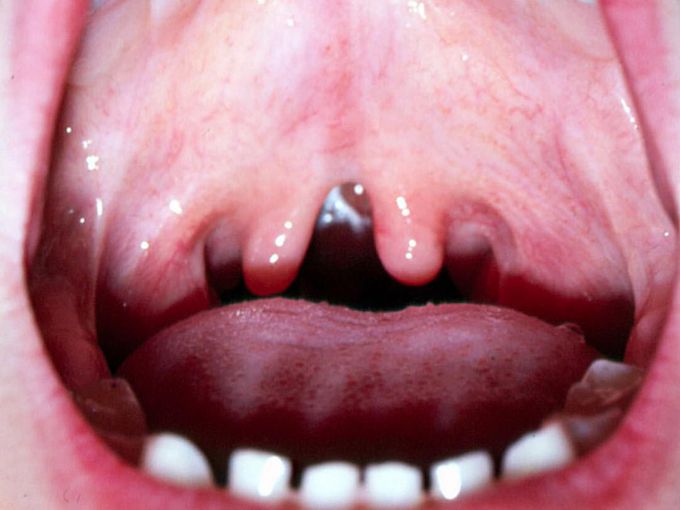


Just a typical bifid or double uvula!!
This is a rare condition characterized by a cleft in the uvula, which is usually median. The clinical forms range from a simple posterior notch to the complete duplication of the uvula. Although bifid uvula is usually isolated, it can also been seen in syndromic forms. Usually discovered by chance, it is important to eliminate any association with a submucous cleft velum, a specific form of cleft palate where a cleft in the muscular tissue is covered by the oral and nasal mucosa. When bifid uvula is isolated, there are no clinical repercussions and it can be considered as a familial genetic trait. In the isolated forms, once an associated submucous cleft has been ruled out, there is no therapeutic management necessary in the absence of clinical manifestations.
Many people lead healthy, normal lives with a bifid uvula and need no treatment. If a bifid uvula is causing symptoms, a doctor may recommend speech and feeding therapies from qualified professionals. In some cases, however, especially when speech is extremely nasal or feeding problems are significant, surgery to repair the uvula and any underlying factors, like a submucous cleft palate, may be advised. The best professional to evaluate and treat a bifid uvula is an ear, nose, and throat (ENT) specialist. Anyways Great job Doc.
Hemodynamic stimuli&nonhemodynamic stimuliEffects of sugar on teeth

